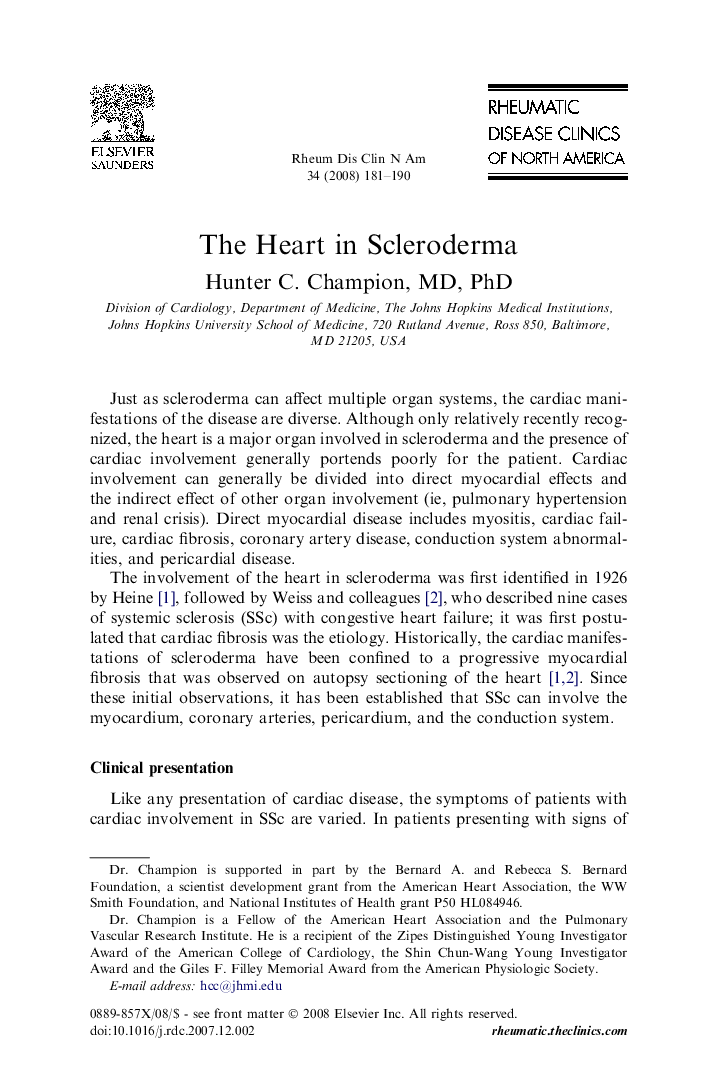| Article ID | Journal | Published Year | Pages | File Type |
|---|---|---|---|---|
| 3390653 | Rheumatic Disease Clinics of North America | 2008 | 10 Pages |
Abstract
The heart is one of the major organs involved in scleroderma, the involvement of which can be manifested by myocardial disease, conduction system abnormalities, arrhythmias, or pericardial disease. Additionally, scleroderma renal crisis and pulmonary hypertension lead to significant cardiac dysfunction secondary to damage in the kidney and lung. This article summarizes the types and mechanism of abnormalities in the heart in scleroderma. The concept of cardiac dysfunction in scleroderma and other rheumatologic conditions has received new interest with the advent of newer noninvasive imaging techniques, as well as the interest in detecting subclinical disease. With this increased interest in cardiac manifestations in scleroderma comes the realization that long-term studies are needed to better assess the appropriate screening and treatment in this patient population.
Related Topics
Health Sciences
Medicine and Dentistry
Immunology, Allergology and Rheumatology
Authors
Hunter C. MD, PhD,
